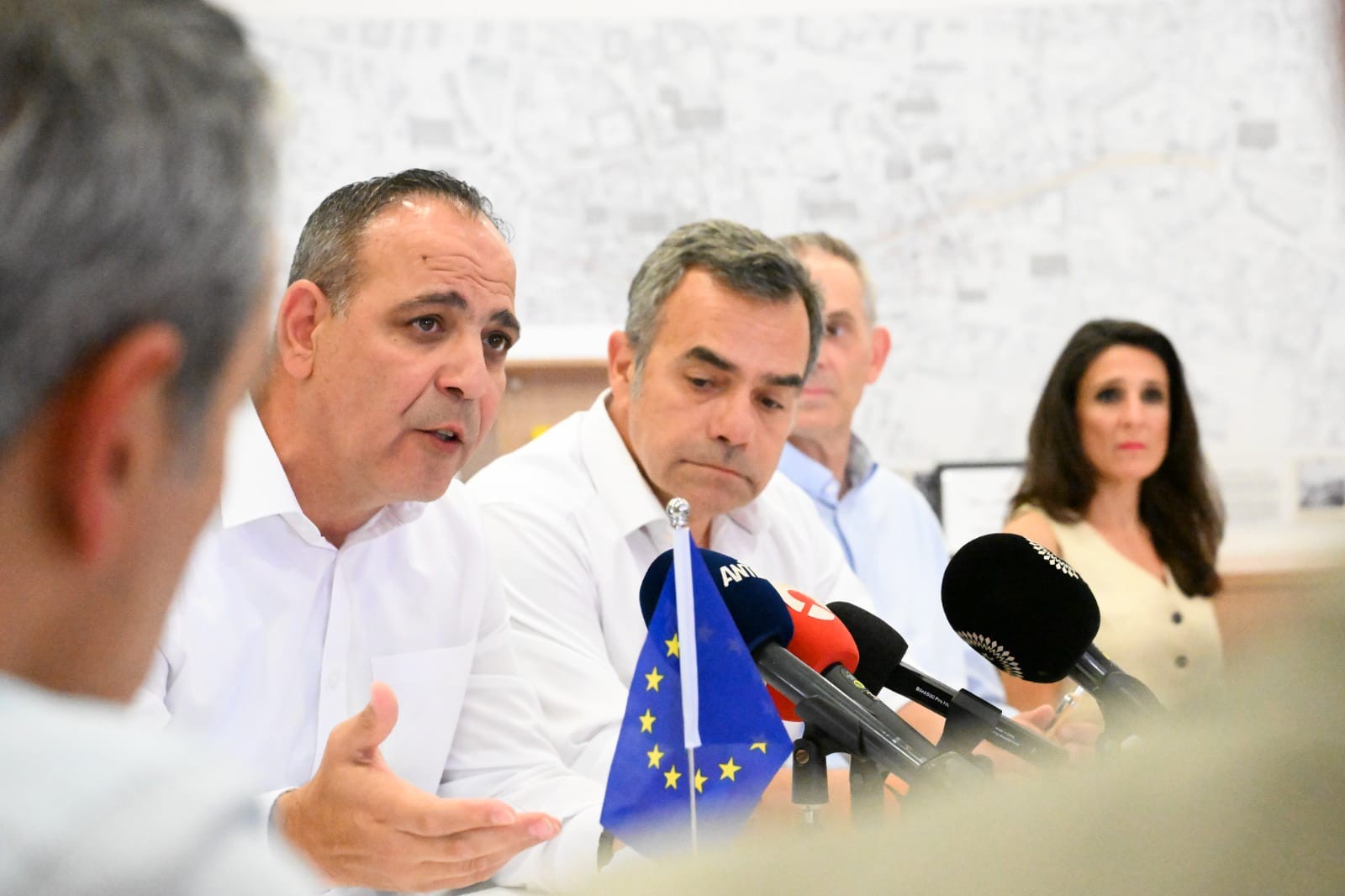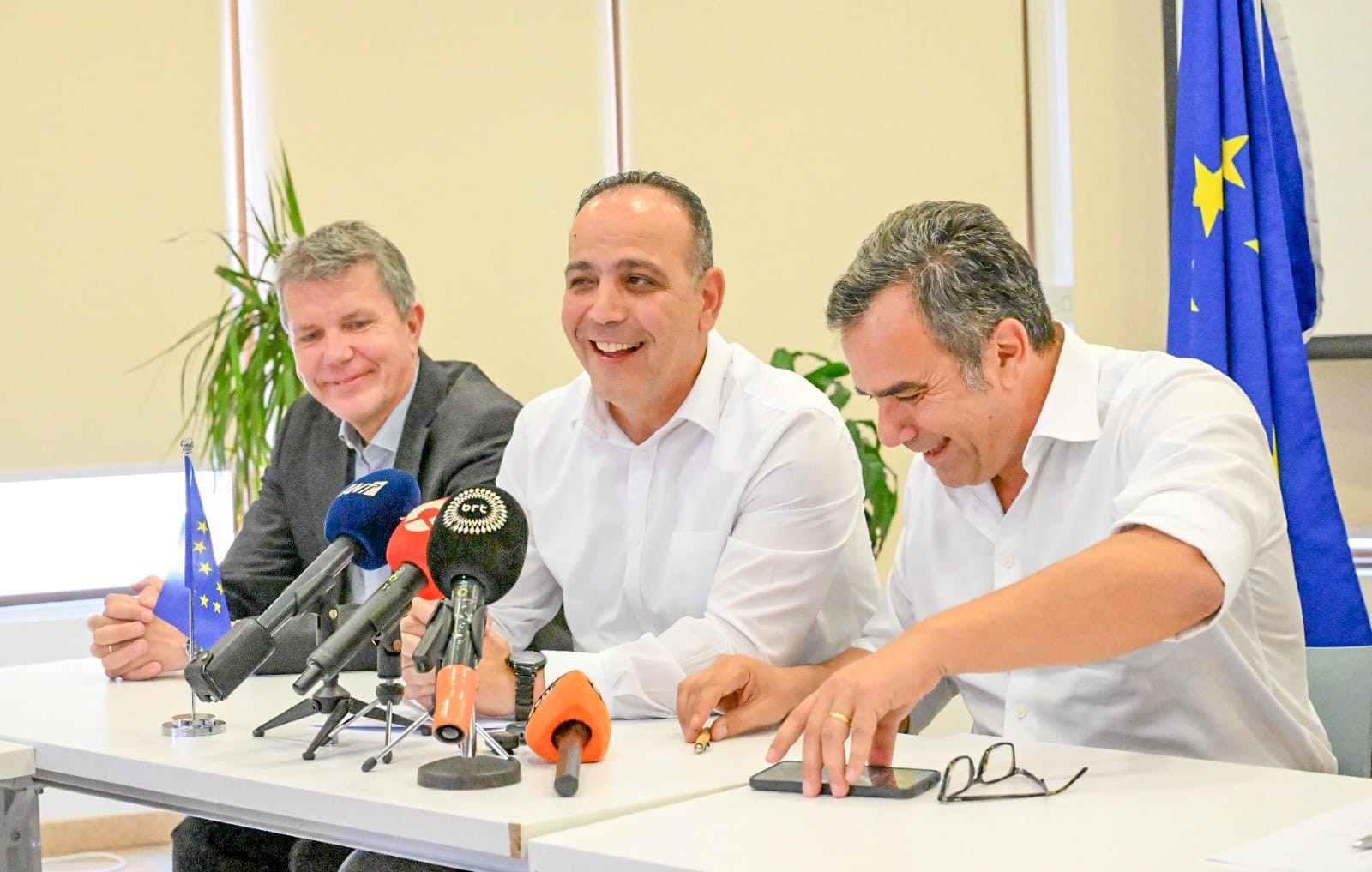A new EU-funded solar energy system at the Haspolat Wastewater Treatment Plant was formally announced on Friday, marking a step forward for renewable energy and cooperation across Cyprus’ divide.
Officials from the European Union, the United Nations Development Programme (UNDP), and both Cypriot communities gathered at the Home for Cooperation in Nicosia’s buffer zone for the signing of a contract to install an 840 kW (AC) photovoltaic system at the Haspolat facility, also known as the New Nicosia Wastewater Treatment Plant in Mia Milia.
The €1.6 million project is being implemented by UNDP under the EU’s Local Infrastructure Facility, as part of the assistance programme for the Turkish Cypriot community. The system is expected to help reduce electricity drawn from the grid by around 17 per cent, cutting costs and lowering carbon emissions.
The contract was signed by UNDP’s Alexandre Prieto and Sibel Paralik, representing the company awarded the works. The ceremony was attended by Nicosia District Administration President Constantinos Yorgacis and the Turkish Cypriot Nicosia mayor, Mehmet Harmanci, highlighting ongoing technical cooperation between the two sides.

In a statement, UNDP said the solar installation aims to improve the environmental sustainability of the treatment plant, which currently covers about 30 per cent of its energy needs through on-site biogas. The addition of solar power is expected to reduce annual carbon dioxide emissions by approximately 830 tonnes.
Harmanci said the plant, which has operated as a joint technical project for years, was a model of cooperation. He welcomed the solar upgrade as a positive development and noted that future projects could focus on water reuse and capacity expansion.
“This project reflects our continued efforts to improve sustainability,” he said.
“It also shows that practical cooperation is possible.”
Yiorkadjis stressed that the solar system would help reduce operating costs and environmental impact, while also improving quality of life for nearby residents, including those in Kaimakli. He added that the reuse of treated water, which is currently discharged into the Pedieos River, should be explored to support water conservation.
The European Commission’s Stefan Simosas, who also attended the event, described the project as an example of how EU support can contribute to environmental goals and trust-building between communities.
According to UNDP and local partners, the solar installation is due to begin in July 2025 and is expected to be completed by the end of the year. The total cost includes design, construction and supervision.
Officials said the project supports wider EU efforts to promote renewable energy and improve infrastructure in Cyprus. It also forms part of ongoing initiatives to build confidence through practical cooperation in areas such as energy, environment, and public services.







Click here to change your cookie preferences